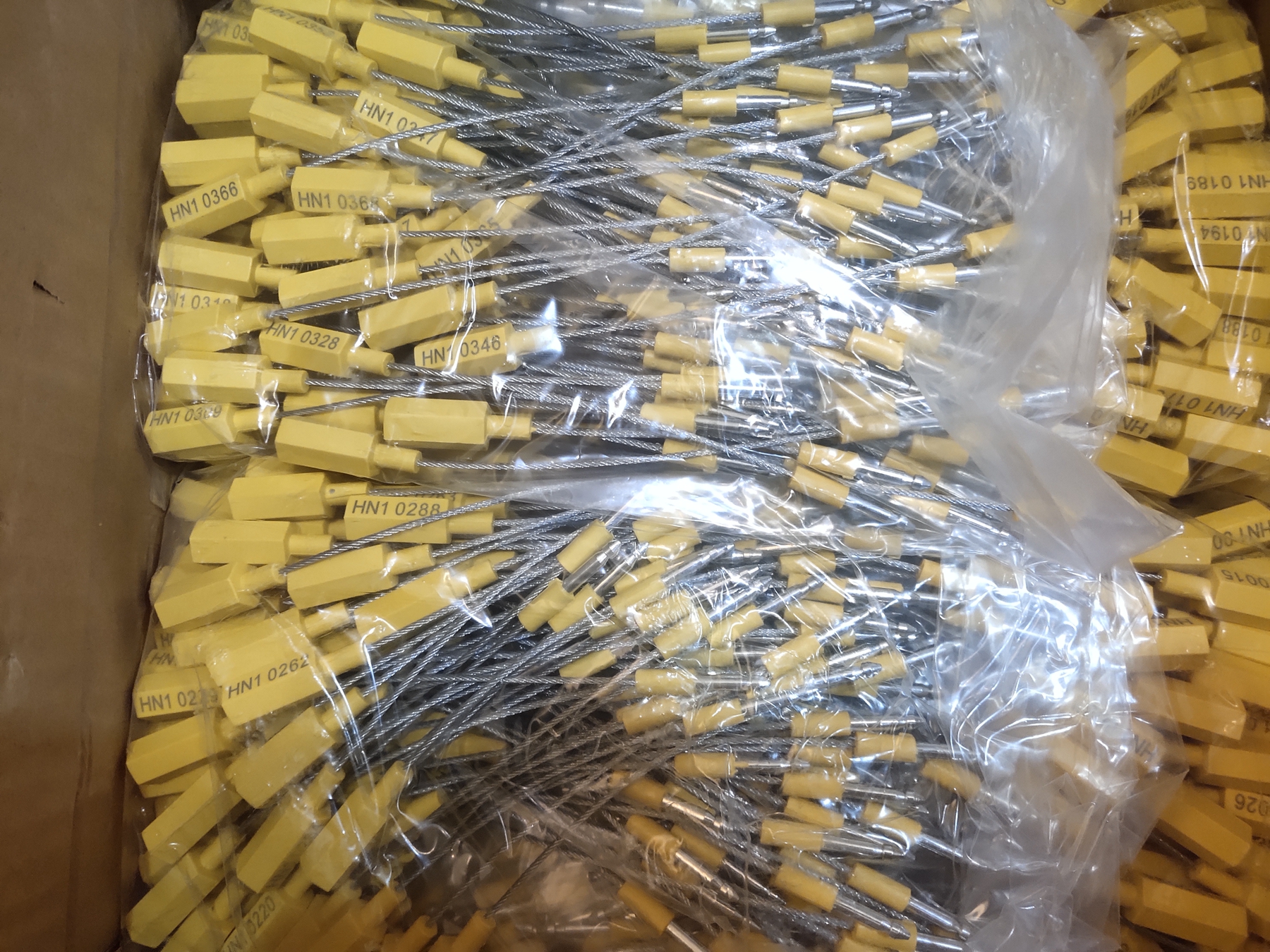A cable seal is a type of security seal used to secure and protect various types of cables, such as electrical cables, fiber optic cables, or data cables. It is designed to prevent unauthorized access, tampering, or theft of the cables or their contents.
Cable seals typically consist of a metal locking mechanism and a durable cable or wire. The locking mechanism is usually made of high-strength materials such as steel or aluminum and incorporates a mechanism that securely fastens the cable. The cable or wire is threaded through the item to be sealed and then inserted into the locking mechanism. Once in place, the cable is tightened and locked, making it difficult to remove without causing visible damage or tampering evidence.
These seals are commonly used in various industries, including transportation, logistics, energy, telecommunications, and security. They provide a visible deterrent and evidence of tampering, ensuring the integrity and security of the cables and their contents.
Cable seals come in different sizes and strengths to accommodate various cable diameters and security requirements. Some cable seals feature unique identification numbers or barcodes for traceability and record-keeping purposes. This helps to track and monitor the seals to ensure they have not been compromised.
It's important to note that cable seals are just one type of security seal among many others available in the market, such as bolt seals, plastic seals, or padlock seals. The choice of seal depends on the specific application, level of security required, and environmental conditions in which they will be used.



